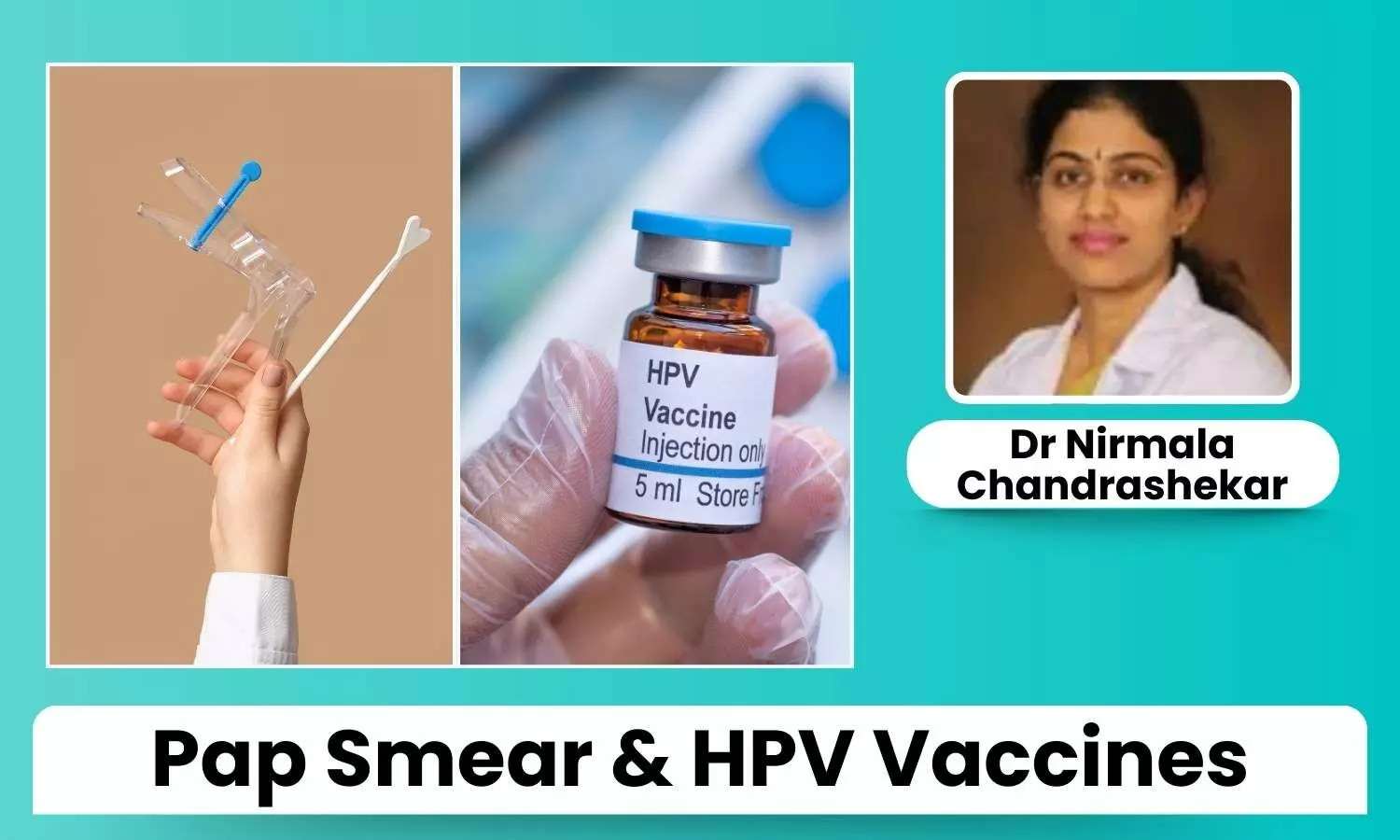Pap Smear & HPV Vaccines: Key Strategies in Preventing Cervical Malignancy - Dr Nirmala Chandrashekar

Cervical cancer is an entirely preventable disease as the different screening, diagnostic and therapeutic procedures are effective. Cervical cancer is almost always caused by Human papilloma virus(HPV).
Pap smear has reduced the incidence of cervical cancer by nearly 80 percent and death by 70 percent.
The important causes of cervical cancer are:
(i) Infection with high-risk HPV
(ii) Multiple types of HPV
(iii) Persistence of infection
(iv) Age > 30 years
(v) Smoking
(vi) Compromised host immunity.
Risk factors for Pre-Cancer and Cervical cancer
- Infection: HPV (16, 18, 31, 33), HIV, Chlamydia.
- Early sexual intercourse (<16 years).
- sexually transmitted diseases.
- early age at first pregnancy.
- Too many and too frequent births.
- Low socioeconomic status.
- multiple sexual partners.
- immunosuppressed (HIV positive) individuals.
- Husband whose previous wife died of cervical malignancy.
- oral pill users(rarely)
- smoking habits.
Pap smear
Pap smear has become the gold standard for screening of cervical cancer. HPV-DNA testing is useful in cervical screening.
Cervical scraping: The material from the cervix is collected using a spatula made of wood or plastic.
The material so collected should be immediately spread over a microscopic slide and fixed and sent to the laboratory with proper identification. The slide so sent is stained and examined by a cytologist
Benefits: The purpose of screening is to reduce the risk and death from cervical cancer.
Pap smear test has been effective in reducing the incidence of cervical cancer by 80% and the mortality by 70%. As a result of Pap test, more and more abnormal cells are detected.
Pap testing after hysterectomy, done for non-cancerous lesion, is not recommended.
Intervals: It should be done at an interval of every 2–3 years after three consecutive yearly negative smears. The high-risk group should be screened with HPV DNA testing combined with pap smear.
Liquid-based Cytology (LBC): This is an advanced technique to pick up the abnormal cells from the cervix Cervical smear is taken using a plastic spatula. The spatula is rinsed in a liquid media. Cells are separated by centrifugation.
Thin layer smears are made. It’s recommended to replace the conventional smear with LBC as it is more sensitive and has less false positive cases
Recommendations for Pap Smear:
- Women aged 21 years and above
- Women Who are or have been sexually active
- Repeat Every 2–3 years after age 30
High risk Individuals:
- Early marriage
- Early intercourse
- Early pregnancy
- Smoking habits
- Oral pill users
- Multiple sexual partners
- Human papilloma virus infection
- Women who are immunosuppressed(HIV positive)
Cervical Cancer Prevention
Pap smear test every three years starting at age of 21.
- HPV vaccines has been developed from the capsid coat of the virus. Vaccines against HPV types 16, 18, 6, 11 are effective in prevention of about 90% cervical cancer. Vaccines are given to girls aged 12–18 years, in two doses. The impact of vaccines is greatest when it is given to females who have not been already infected. This is the reason it is recommended to adolescent girls. Vaccines are safe and well tolerated.
Vaccines are effective for at least 7.5 years. However, screening with Pap test should be continued as the vaccines are type specific and do not protect against the other types of HPV.
- To delay sexual exposure until the cervical epithelium has attained physiological maturity.
- To maintain a local hygiene and to treat vaginal infections.
- To use condom specially during early sexual life.
- To maintain penile hygiene, as it may be the reservoir for high-risk HPV.
- Reducing or quitting smoking reduces pre cancer of cervix


